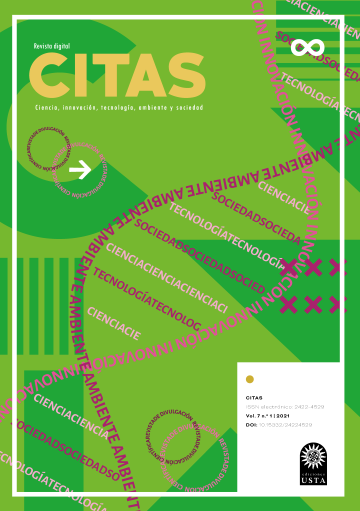La andragogía y las tecnologías de información y comunicación (TIC)
Andragogy and information and communication technologies (ICTs)
Abstract (en)
This article is the result of a review of books, journals and various documents related to adult learning and aims to present an overview of the main contributions of andragogy to teaching and its principles and characteristics. It also desires to point out those structural and didactic aspects that differentiate it from pedagogy. Likewise, the paper intends to show how information and communication technologies (ICTs) are a valuable resource for the andragogical educational process, since through their means and tools learning environments can be developed that are adjusted to psychosocial needs, conditions and cognitive styles of the adult learner.
Abstract (es)
Este artículo es el resultado del recorrido de una investigación por libros, revistas y diversos documentos relacionados con el aprendizaje en los adultos y tiene como fin presentar un panorama general de los principales aportes de la andragogía a la enseñanza y de sus principios y características. También, espera señalar aquellos aspectos estructurales y didácticos que la diferencian de la pedagogía. Igualmente, el texto pretende mostrar cómo las tecnologías de la información y la comunicación (TIC) son valiosos recursos para el proceso educativo andragógico, ya que a través de sus medios y herramientas se pueden desarrollar entornos de aprendizaje ajustados a las necesidades psicosociales, las condiciones y los estilos cognitivos del estudiante adulto.
References
Castillo, F. (2018). Andragogia, andragogos y sus aportaciones. Voces de la Educación, 3(6), 64-67.
Gómez, L. (s. f.). Concepción de la educación de adultos. Origen de la andragogia. Definición: pedagogía y andragogía. El proceso andragógico. Fundamentos andragogicos. Academia.edu. https://www.academia.edu/11191215/Concepci%C3%B3n_de_la_Educaci%C3%B3n_de_Adultos._Origen_de_la_Andragogia._Definici%C3%B3n_Pedagog%C3%ADa_y_Andragog%C3%ADa._El_proceso_Andrag%C3%B3gico_Fundamentos_Andragogicos?auto=download
Kapp, A. (1833). Platon's Erziehungslehre, als Pädagogik für die Einzelnen und als Staatspädagogik. Minden und Leipzig.
Knowles, M. (1970). The Modern Practice of Adult Education: From Pedagogy to Andragogy. Prentice Hall; Cambridge.
Knowles, M., Holton, E. y Swanson, R. (2001). Andragogía : el aprendizaje de los adultos. Oxford University Press.
Pérez, S. U. (2009). Módelo andragógico. Fundamentos. Universidad del Valle de Méxio.
Sánchez D., I. (2015). La andragogía de Malcom Knowles: teoría y tecnología de la educación de adultos [tesis de doctorado inédita. Universidad Cardenal Herrera-CEU. https://repositorioinstitucional.ceu.es/bitstream/10637/7599/1/La%20andragog%c3%ada%20de%20Malcom%20Knowles_teor%c3%ada%20y%20tecnolog%c3%ada%20de%20la%20educaci%c3%b3n%20de%20adultos_Tesis_Iluminada%20S%c3%a1nchez%20Domenech.pdf
Solis, A. y Herrera, S. (2012, 3 de agosto). Las TIC´s en la praxis andragógica. Amelia Solís. http://ameliasilvio.blogspot.com/
How to Cite
License
The authors sign a transfer of rights so that Universidad Santo Tomás can publish the articles under the conditions described below. The authors, readers and other users are free to share, copy, distribute, perform and publicly communicate the work under the following conditions:
-
Attribution — You must give appropriate credit, provide a link to the license, and indicate if changes were made. You may do so in any reasonable manner, but not in any way that suggests the licensor endorses you or your use.
-
NonCommercial — You may not use the material for commercial purposes.
-
ShareAlike — If you remix, transform, or build upon the material, you must distribute your contributions under the same license as the original.
No additional restrictions — You may not apply legal terms or technological measures that legally restrict others from doing anything the license permits.
CITAS is licensed under Creative Commons Attribution-NonCommercial-ShareAlike 4.0 International (CC BY-NC-SA 4.0).

Until 2019 the documents published in the magazine were under the Creative Commons Attribution-ShareAlike license (CC BY-SA), however, in order to guarantee the open and free distribution of the content published in the magazine, it was decided to change the type Commons Attribution-NonCommercial-ShareAlike 4.0 International license (CC BY-NC-SA 4.0)






